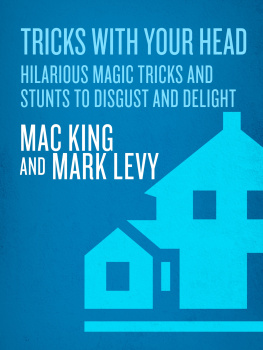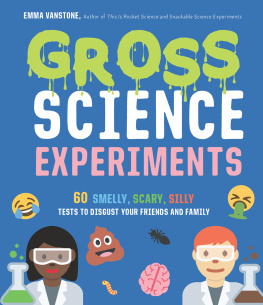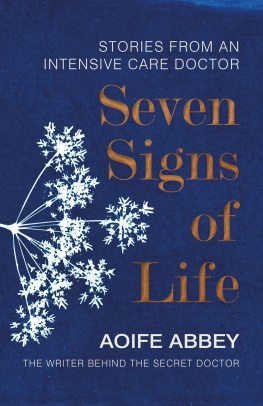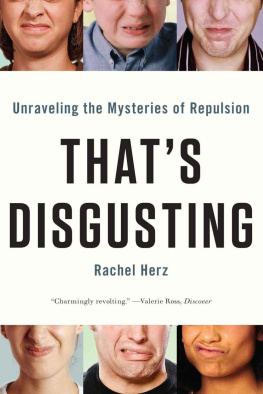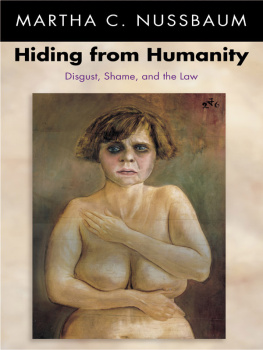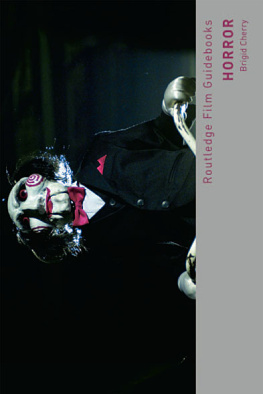
A Politics of Disgust
This book explores the intersubjective nature of disgust, the fascination that often accompanies italong with repulsionand the ethical implications of the experience. With attention to what emotions do rather than what they necessarily are, it examines the ways in which disgust works to create structures of meaning about selfhood, interpersonal relationships, and the worlds we inhabit. Offering a critique of existing approaches to disgust, the author advances a feminist intersubjective perspective, drawing on the work of Jessica Benjamin to understand the relational aspects of disgust encounters. Thus, the focus is not on defining disgust definitively, nor debating what objects invoke disgust, nor on whether it is a universal experience, but on the effects of disgust once invoked, what the experience does and the impact it has. Through a case study of incarceration and death by self-inflicted strangulationa death that was later ruled a homicide this volume sheds light on the nature of the ethical demands of disgust and its nature as an active struggle for recognition. As such, A Politics of Disgust will appeal to scholars of gender studies, social theory and philosophy with interests in the emotions and intersubjectivity.
Eleonora Joensuu teaches in the areas of educational philosophy and theory, educational reflective practice, and writing at Simon Fraser University, Canada. She holds a PhD in Philosophy of Education from Simon Fraser University. Her current research is focused on the development of therapeutic interventions for intersubjective disgust encounters.
Routledge Studies in Social and Political Thought
The Intellectual Origins of Modernity
David Ohana
Political Fraternity
Democracy beyond Freedom and Equality
Angel Puyol
Nationalism, Inequality and Englands Political Predicament
Charles Leddy-Owen
Politics through the Iliad and the Odyssey
Hobbes Writes Homer
Andrea Catanzaro
Social Change in a Material World
Theodore R. Schatzki
Hubris and Progress
A Future Born of Presumption
Carlo Bordoni
Work: Marxist and Systems-Theoretical Approaches
Stefan Khl
The Social Life of Nothing: Silence, Invisibility and Emptiness in Tales of Lost Experience
Susie Scott
A Politics of Disgust
Selfhood, World-Making, and Ethics
Eleonora Joensuu
For a full list of titles in this series, please visit www.routledge.com/series/RSSPT.
A Politics of Disgust
Selfhood, World-Making, and Ethics
Eleonora Joensuu
First published 2020
by Routledge
2 Park Square, Milton Park, Abingdon, Oxon OX14 4RN
and by Routledge
52 Vanderbilt Avenue, New York, NY 10017
Routledge is an imprint of the Taylor & Francis Group, an informa business
2020 Eleonora Joensuu
The right of Eleonora Joensuu to be identified as author of this work has been asserted by her in accordance with sections 77 and 78 of the Copyright, Designs and Patents Act 1988.
All rights reserved. No part of this book may be reprinted or reproduced or utilized in any form or by any electronic, mechanical, or other means, now known or hereafter invented, including photocopying and recording, or in any information storage or retrieval system, without permission in writing from the publishers.
Trademark notice: Product or corporate names may be trademarks or registered trademarks, and are used only for identification and explanation without intent to infringe.
British Library Cataloguing-in-Publication Data
A catalogue record for this book is available from the British Library
Library of Congress Cataloging-in-Publication Data
A catalog record has been requested for this book
ISBN: 978-0-367-19226-6 (hbk)
ISBN: 978-0-429-20115-8 (ebk)
Typeset in Times New Roman
by Wearset Ltd, Boldon, Tyne and Wear
Contents
Though we often write alone, there are many that have been with me in the process, there to pull me out of doubt, hunger, and fatigue. I wish to acknowledge them here, even though the gesture inevitably falls short. I am deeply grateful to my parents, Anneli and Jukkathis work speaks your gifts of love, curiosity, and compassion. Isi, here is the book, finally, that you asked me to write so long ago. To my sister Sofia, who carries my heart as if it were her own. Thank you for weathering the storms at my side with sisu and the ability to laugh even during the most absurd of moments. To my love, Jenna, who has always believed, even when I have not. This text has been born from your labours, love, and commitment as much as it has from my own. I am also deeply grateful to Dr. Joshua Nichols for journeying with me for so long and for providing invaluable feedback, philosophical grit, and wayfinding when the path forward was unclear. I want to also acknowledge the group of fierce women whom I have had the pleasure of thinking and growing alongside. Elena, Jade, Julia, Kim, Nina, Robyn, Sarah, Shannonthank you for sustaining me in more ways than I could ever express. Special thanks to Dr. Charles Bingham, Dr. Allan Mackinnon, and Dr. Heeson Bai for all their support and encouragement. Most of all, I am grateful to my two nieces, Milla and Zara. Though you are too young to know it now, you have taught me what it means to keep getting up to try, to walk, to reach, to persevere, even after falling. Your daily acts of joyful resilience and courage have helped me to find mine. With gratitude and acknowledgement of the unceded lands of the Coast Salish people, including the lands of the xmkwm (Musqueam), Skwxw7mesh (Squamish), Slwta/Selilwitulh (Tsleil-Waututh) and Kwikwetlem First Nations, on which I live and where this work has been researched and written.
Imagine and remember the following moments: when you opened your eyes this morning, the moment you arrived at work today, the moment you sat down to read these words. What unites these experiences? Affect. Human experience is affectivewe move through the world with feeling, emotion, and embodied sensations. The moment we walk into a room, board the bus, crawl into bed, sit down at the computer, we feel something, whether or not we are able to name or identify what it is that we feel. To broaden an understanding of human experience accordingly requires, in part, expanding an understanding of human feeling and emotion and the ways that they shape and impact daily experiences, relationships, and worlds. Broadening an understanding of human experience includes accounting for not only the positive and feel-good emotions, but also those that are negative and demanding. Disgust is one such particularly demanding emotion.
Disgust is demanding both in its embodied experience and in the struggle to interpret and understand what disgust experiences may mean. The visceral elements of disgustthe churn of the stomach, the grimace of the face, the protruding of the tongue, the pierce of a foul smell in the nostrilscommand our attention and can evoke a sense of urgency to move beyond the experience. Despite being demanding, disgust is an everyday experience; it appears in everyday, ordinary moments such as when we walk down the street, take the garbage out, or visit friends and family.


